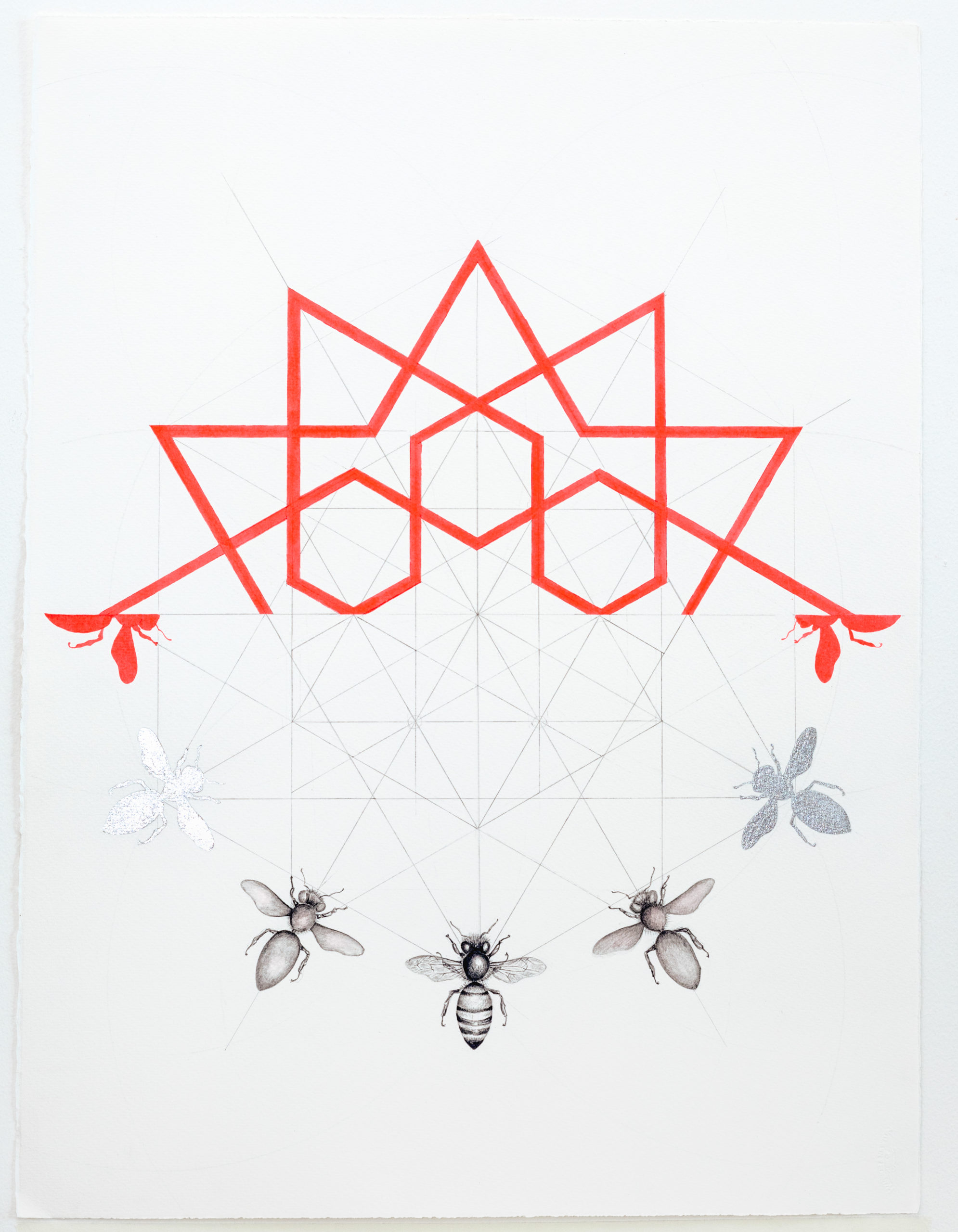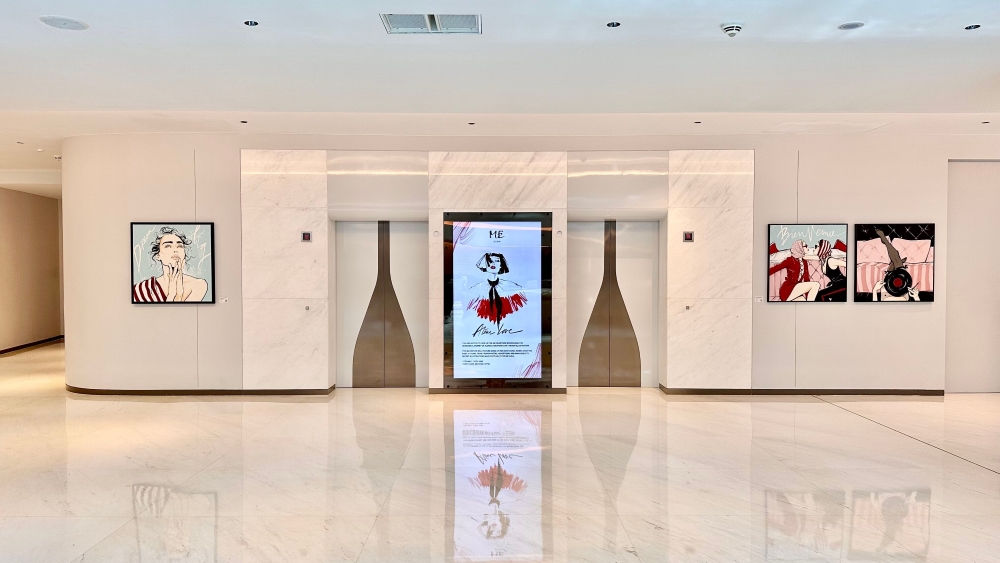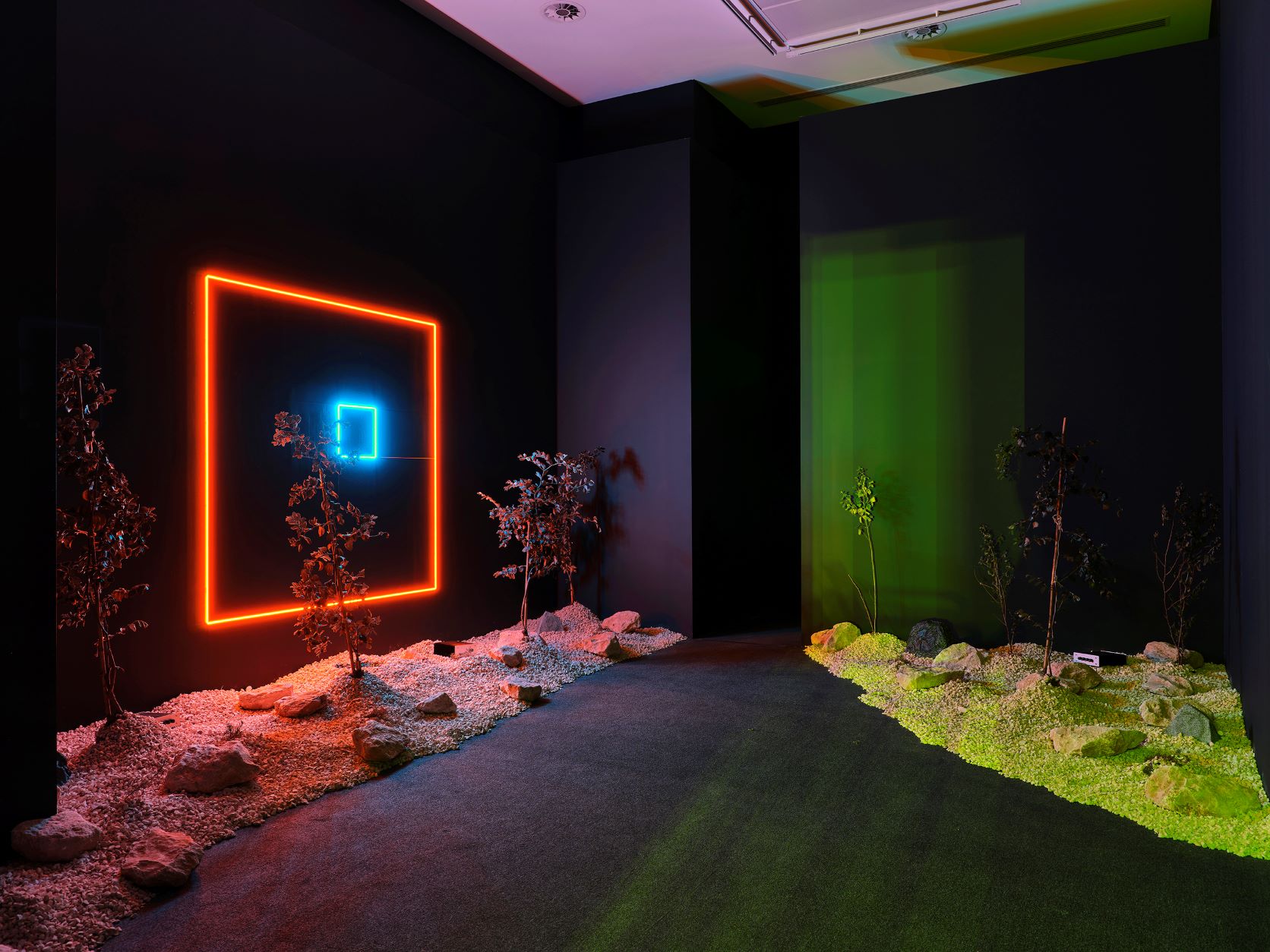The Art and Culture Development Foundation (ACDF) of the Republic of Uzbekistan has announced the public programming for Dixit Algorizmi – The Garden of Knowledge at the 59th International Art Exhibition – La Biennale di Venezia.
Curated by Studio Space Caviar (Joseph Grima, Camilo Oliveira, Sofia Pia Belenky, Francesco Lupia) and Sheida Ghomashchi, the pavilion will introduce an unconventional concept, set up, and layout for the art Biennale that will host a rotating program of workshops and public events with practitioners whose work engages the histories and geographies of technological development. Scheduled to take place between 19 April and 22 November, an expansive programme has been developed in collaboration with the curators and the Center for Contemporary Arts in Tashkent.
The public programme will launch with Velocity0: Transcode/Transmute a commissioned sound installation by Uzbek musician Abror Zaforov and French/ Japanese artist and visual designer Charli Tapp. Taking place daily throughout the Vernissage the performance will feed classical Uzbek compositions into a computer-controlled piano to explore how artificial intelligence responds to data sets of non-western music. A second performance during the vernissage week will present a poetry duel with leading figures from the resurgent Tashkent literary scene in the Pavilion on 20 April.

On 21 April in Bar Olimpia Sprint, Venice, a special edition of Hans Ulrich Obrist’s Brutally Early Club will explore the themes of Dixit Algorizmi, The Garden of Knowledge. Hosted by Hans Ulrich Obrist and modelled on a traditional salon, this is the first time the Brutally Early Club has been hosted at the Venice Biennale since its launch in 2006.
The central tenet of the public programme is developed around a series of round tables which take place throughout the biennale from
20 April to 24 September. Split into five chapters, ACDF will invite over 32 guests from 14 countries to discuss themes relating to Dixit Algorizmi – The Garden of Knowledge. Topics range from the image and artistic representation of Uzbekistan and the future of art practice to the intersection and ethics of art and AI and how our perception of the universe is shaped by the technologies we build.

An additional round table on 22 April will be guest curated by Cyril Zammit, Design Advisor and Consultant. Titled ‘What does the transition to digital art imply for its traditional practitioners?’ the round table will explore shifts towards digital platforms and digital creators. Conversations will address whether AI will ever substitute the human hand and whether digital work will survive into the future. Panelists include Andrés Reisinger (digital artist, designer), Luisa Ausenda (Head of Collectors Relations and Institutional Partnerships at Aorist), Serena Tabbachi (director and co-founder of the Museum of Contemporary Digital Art (MoCDA) and Jérômes Neutres (chief curator of the Guy & Myriam Ullens Foundation).
From 4 July the pavilion will present The Panoptic Garden a one-week intensive program curated by Sara Raza & Andris Brinkmanis.
Open to 24 emerging artists and thinkers who have an interest in global art and technology, the programme addresses transcultural themes relating to the garden as a discursive space. Participants will undertake daily field trips across Venice visiting gardens, institutions, private homes and other public sites and take part in land cultivation/ gardening workshops, talks, walking tours and a supper club. The Panoptic Garden will culminate in a collective publication edited by Raza and Brinkmanis.
Closing Dixit Algorizmi – The Garden of Knowledge during the Finissage week in November 2022, three radio stations from Palestine, Uzbekistan and Italy will each present live radio broadcasts from the pavilion.
“My practice explores traditional instruments and classical forms, but I believe bridging the old and the new allows us to face the future and honour the past. This is why my project with Charlie Tapp is very powerful and very dear to me. Being part of the Venice Art Biennial opens up new perspectives and opportunities for Uzbekistan and its intellectuals. It is a great chance to connect with the global art world and to foster new meaningful connections on a personal and institutional level.” – commented Abror Zufarov, Uzbek Musician
“Thinking beyond borders and exploring a shared cultural paradigm is being human, first and foremost. In that sense, I believe the pavilion’s approach is bold, yet necessary. Providing an open and unrestricted voice channel through Velocity0 seemed to be the right thing to do. What we’re setting up with “Velocity0: The Program” – rendering the piano’s algorithm accessible through an app, inviting composers across the world to feed it – isn’t static, it’s the starting point of a 7 months long journey in unexpectedness and plurality of speech.” Сharli Tapp, Composer, artist, Europe, Japan.
“My artistic practise is influenced by an awareness of our past and present surroundings. The Uzbekistan Pavilion reflects on this notion and unveils the origins of contemporary technological development. Technology is an indispensable, if not the indispensable, element of my work. Because of the rapidity of its progress, it is quite critical to sometimes pause and reflect on its being, which is why I am thrilled and thankful to take part in this public program.” – adds Andrés Reisinger, Digital Artist and Designer
“I am honoured to be invited to participate in the discussion ‘The Future History of Art Infrastructure: Culture and Representation in Metaspace’ at the first Pavilion of Contemporary Art of Uzbekistan. The public programme will allow for cultural exchange, greater development of artistic ideas.”-comments Normurod Negmatov, Uzbek curator
“My latest projects focus on exploring new digital forms, generated materials, imaginary environments and there future integrations to META. I am also interested in exploring national memory, internationally underrepresented and forgotten cultural details and myths from my native Central Asian region. I believe the public programme hosted by the Uzbekistan National Pavilion can establish a new form of collective vision showing how (and where) we are heading in the WEB 3.0 reality.” Denis Davydov, Uzbek artist
I am delighted to unite with my colleague Andris Brinkmanis to organize the intensive public program “The Panoptic Garden,” which explores the garden as a metaphor for opening up questions about surveillance in relation to utopia, heterotopia and dystopia. Building upon the Pavilion’s focus on the practices of 9th century Islamic polymath Muhammad bin Musa al-Khwarizimi (also known as the inventor of algorithmic thinking) we are creating a site specific and site responsive program throughout Venice that seeks to disrupt algorithmic bias from an artistic and poetic angle. We are excited to be collaborating with Masters students Sophia Baker and Ami Mehta from the New York University’s Interactive Telecommunications Program, where I teach, to explore virtual avenues pertaining to “world-building,” which will allow us to explore our ideas through the art and technology of our time and create a program that draws on Venice’s interconnected histories from local, global and virtual perspectives. We are grateful to the Foundation for inviting us to be part of the 59th Venice Biennale’s Uzbek Pavillion program– added Sara Raza, Curator, writer, United States and Andris Brinkmanis, Art Critic & curator.





